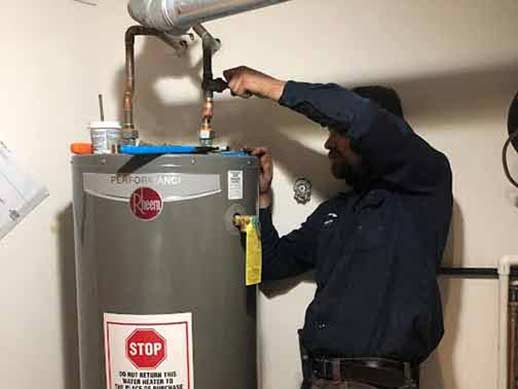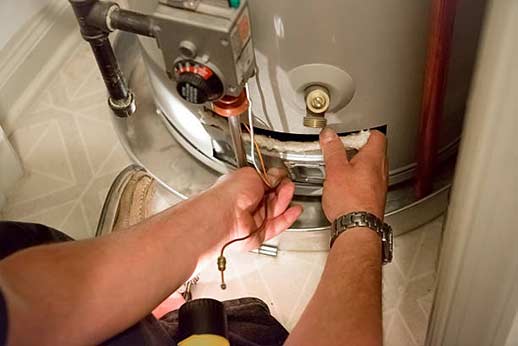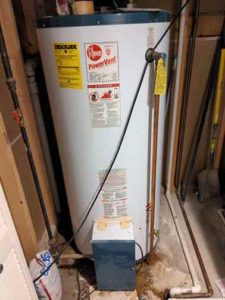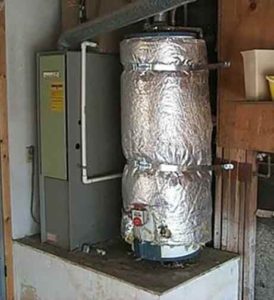The Importance of Water Heater Repairs
When it comes to the comfort and convenience of our homes, few things are as essential as a working water heater. Whether it’s for a soothing shower after a long day or the necessary hot water for cleaning dishes, having a functional water heater is a must have in any household. However, like any other appliance, water heaters can experience problems over time. And when these issues occur, it’s important to address them promptly to ensure a seamless supply of hot water.
Common Water Heater Problems
Water heaters can encounter a range of issues that may require repairs. Understanding these problems can help you identify the signs and symptoms and take appropriate action. Here are some of the most common water heater problems:
- Lack of Hot Water: One of the most frustrating issues homeowners face is when their water heater fails to deliver hot water. This problem could be attributed to a malfunctioning heating element, a faulty thermostat, or a buildup of sediment in the tank.
- Inadequate Hot Water: If your water heater is not providing an adequate amount of hot water, it could be due to a variety of reasons. These include an incorrect thermostat setting, a gas valve problem, or a damaged dip tube.
- Strange Noises: Unusual noises coming from your water heater may indicate loose or broken heating elements, the presence of sediment, or excessive pressure inside the tank.
- Water Leaks: Leakage around the water heater can signify several issues, including a damaged temperature and pressure relief valve, a faulty drain valve, or a crack in the tank.
- Unpleasant Odors: Foul odors emitting from your water heater could be a sign of bacterial contamination in the tank. In such cases, thorough cleaning and disinfection are necessary.
The Cost of Water Heater Repairs in Chicago
Now that we’ve covered the common water heater problems, let’s get into the cost of repairs in the vibrant city of Chicago. It’s important to note that the cost of water heater repairs can vary based on several factors, including the type and size of the unit, the extent of the damage, and the rates charged by local service providers. However, we can provide you with a general overview of the expected costs.
On average, homeowners in Chicago can expect to pay anywhere between $150 and $800 for water heater repairs. This range encompasses minor repairs, such as replacing a valve or a heating element, to more extensive repairs that may involve fixing leaks or replacing significant components.
It’s worth mentioning that these costs may not include any additional charges for emergency repairs or any required permits. It’s always advisable to obtain a detailed quote from a local plumber or before proceeding with any repairs. This will help you assess the overall cost and make an informed decision.
Factors Affecting Repair Costs
As previously mentioned, several factors can influence the cost of water heater repairs. Understanding these factors can give you a better idea of what to expect when it comes to pricing. Here are some key factors to consider:
- Type of Water Heater: The type of water heater you have can impact the repair costs. Conventional tank water heaters and tankless water heaters have different components and mechanisms, which may require varying repair procedures.
- Extent of the Damage: The severity of the problem and the extent of the repair required will directly affect the overall cost. Minor issues, such as replacing a valve, will likely be less expensive than major repairs like fixing a leaking tank.
- Pricing Policies of Service Providers: Different repair companies may have varying pricing structures. It’s always a good idea to gather quotes from multiple providers to compare costs and ensure you’re getting a fair price.
- Location: Repair costs may vary based on your location within Chicago. Factors such as accessibility, local labor rates, and even the availability of repair specialists can influence the final cost.

Remember to choose a reputable repair service that offers transparent pricing, has a solid reputation, and provides experienced technicians.
Choosing the Right Water Heater Repair Service
When it comes to entrusting your water heater repairs to a professional, it’s crucial to choose a reputable and reliable service provider. Here are some tips to help you make an informed decision:
- Research and Reviews: Take the time to research different repair companies and read customer reviews. This will give you insight into their reputation and the quality of service they provide.
- Experience and Expertise: Look for companies that have extensive experience in water heater repairs. A well-established company is more likely to have the knowledge and skills needed to handle a wide range of issues.
- License and Insurance: Ensure that the repair service you choose is licensed and insured. This provides protection for both you and the technicians working on your water heater.
- Transparent Pricing: Opt for a repair service that offers transparent pricing. This means they provide you with a detailed breakdown of costs and are upfront about any additional charges.
- Availability and Response Time: Water heater problems can arise at any time. Choose a plumber that offers 24 hour service, especially for emergency plumbing repairs.
To Sum it Up
When it comes to water heater repairs in Chicago, it’s important to act swiftly to address any issues that arise. By understanding common water heater problems and the factors that influence repair costs, you’ll be better equipped to make informed decisions. Remember to choose a reputable water heater repair plumber that offers transparent pricing, has a solid reputation, and provides experienced technicians. By prioritizing the health and functionality of your water heater, you can ensure a continuous and reliable supply of hot water in your Chicago home.
—


